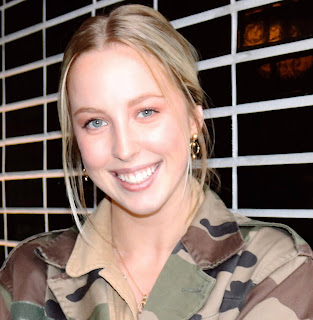 |
| A memorial to slain Chicagoans on the city's far South Side is a grim reminder of murder's toll. (Photo: John W. Fountain) |
By Sydney Mishler
At 18 I moved to Chicago for college. At 21, I sat in a classroom as my journalism professor told the class the subject of our capstone project: Fifty-one women strangled in Chicago. Fifty-one women thrown in the garbage like trash. Fifty-one women pinpointed as unworthy to live.
Fifty-one women who would never go home to their families. Fifty-one women who would maybe never walk down the aisle.
Fifty-one women who would never get their dream job, who would never have children, who would never grow old and see the world change.
Fifty-one women gone.
I grew up in a safe home in a good neighborhood. These women grew up in war zones and were targeted for their vulnerability.
What if Winifred Ford had grown up in my place? What if she grew up in Louisville in a safe home with a good community?
What if Brenda Cowart could have gone to the school I did, with the friends I had? What if Elaine Boneta went to my church and shopped at the grocery store my Mom did?
I wondered: How am I any different from these women, when you strip away where I’m from and my home life? If they had my white skin, would they have been spared? If they had my undeniable privilege, would they have not been discarded so carelessly? If they had my opportunity to earn a degree, would their right to life suddenly mean more than it did before?
How can a white girl from the South look into the eyes of the families that have lost their daughters to an epidemic that Chicago chooses to ignore and say, “It’s going to be okay?” or “I’m very sorry for your loss?”
How can I be sorry when I don’t know what it’s like to hear gunshots every day? How can I relate to them when I don’t know the desperation and the poverty and the violence and the discrimination and the injustice they face?
A five-hour drive between Louisville and Chicago separates polarized ways of living and somehow no one chooses to notice. No one taught me this in school. No one told me this growing up.
I can’t control where I am from. I can’t control the whiteness of my skin. These fifty-one women didn’t choose to grow up in the endangered zones they called home. They didn’t choose to have a skin color that automatically pegged them as “less than.”
Do I look into the families’ eyes and try and relate to them?
No. It is impossible. Do I tell them I’m sorry? Maybe, because I am, in a far-off way, detached from the deep sorrow they feel daily.
Do I look them into the eyes and ask to tell their daughters’ stories? Yes. Because if I had grown up with the cards they were dealt, maybe one of them would’ve grown up and asked to tell my story.
_____________________
_____________________
_____________________
_____________________

